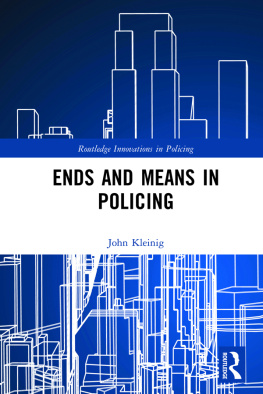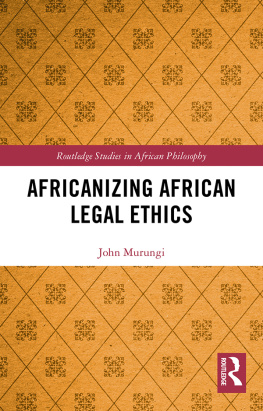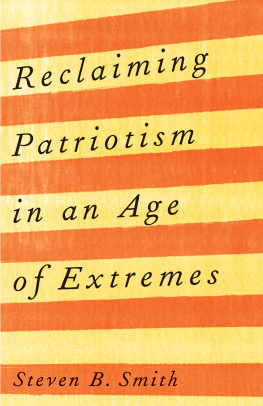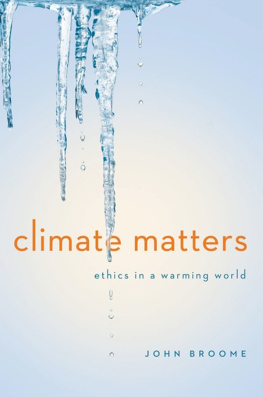John Kleinig - The Ethics of Patriotism: A Debate
Here you can read online John Kleinig - The Ethics of Patriotism: A Debate full text of the book (entire story) in english for free. Download pdf and epub, get meaning, cover and reviews about this ebook. year: 2015, publisher: Wiley, genre: Politics. Description of the work, (preface) as well as reviews are available. Best literature library LitArk.com created for fans of good reading and offers a wide selection of genres:
Romance novel
Science fiction
Adventure
Detective
Science
History
Home and family
Prose
Art
Politics
Computer
Non-fiction
Religion
Business
Children
Humor
Choose a favorite category and find really read worthwhile books. Enjoy immersion in the world of imagination, feel the emotions of the characters or learn something new for yourself, make an fascinating discovery.

- Book:The Ethics of Patriotism: A Debate
- Author:
- Publisher:Wiley
- Genre:
- Year:2015
- Rating:5 / 5
- Favourites:Add to favourites
- Your mark:
- 100
- 1
- 2
- 3
- 4
- 5
The Ethics of Patriotism: A Debate: summary, description and annotation
We offer to read an annotation, description, summary or preface (depends on what the author of the book "The Ethics of Patriotism: A Debate" wrote himself). If you haven't found the necessary information about the book — write in the comments, we will try to find it.
The Ethics of Patriotism: A Debate — read online for free the complete book (whole text) full work
Below is the text of the book, divided by pages. System saving the place of the last page read, allows you to conveniently read the book "The Ethics of Patriotism: A Debate" online for free, without having to search again every time where you left off. Put a bookmark, and you can go to the page where you finished reading at any time.
Font size:
Interval:
Bookmark:
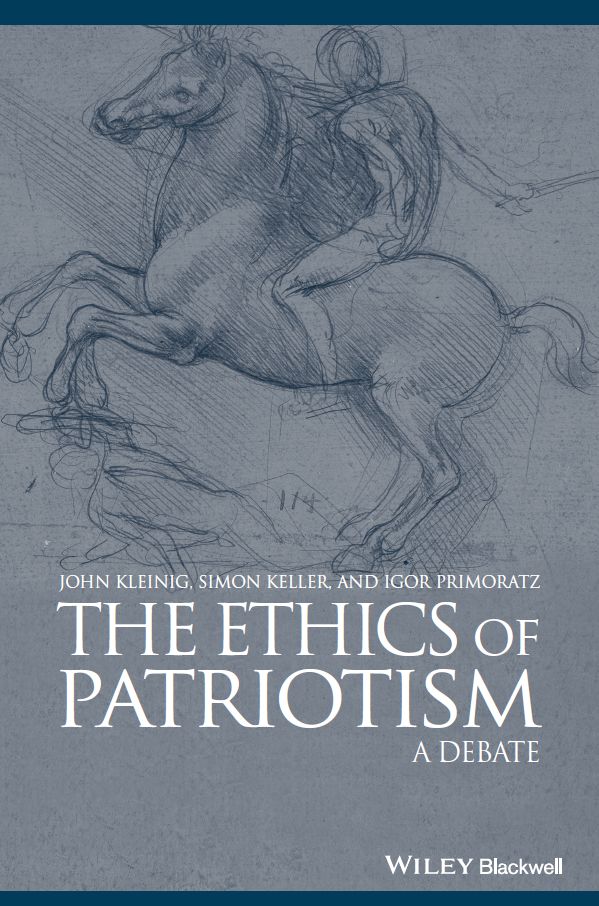
Series Editor: Ernest Sosa
Dialogue has always been a powerful means of philosophical exploration and exposition. By presenting important current issues in philosophy in the form of a debate, this series attempts to capture the flavor of philosophical argument and to convey the excitement generated by the exchange of ideas. Each author contributes a major, original essay. When these essays have been completed, the authors are each given the opportunity to respond to the opposing view.
Personal Identity
Sydney Shoemaker and Richard Swinburne
Consciousness and Causality
D. M. Armstrong and Norman Malcolm
Critical Theory
David Couzens Hoy and Thomas McCarthy
Moral Relativism and Moral Objectivity
Gilbert Harman and Judith Jarvis Thomson
Three Methods of Ethics
Marcia W. Baron, Philip Pettit, and Michael Slote
Atheism and Theism, Second Edition
J. J. C. Smart and J. J. Haldane
Epistemic Justification
Laurence BonJour and Ernest Sosa
Four Views on Free Will
John Martin Fischer, Robert Kane, Derk Pereboom, and Manuel Vargas
Knowledge of God
Alvin Plantinga and Michael J. Tooley
The Ethics of Patriotism: A Debate
John Kleinig, Simon Keller, and Igor Primoratz
John Kleinig,
Simon Keller,
and
Igor Primoratz

This edition first published 2015
2015 John Wiley and Sons, Inc.
Registered Office
John Wiley & Sons, Ltd, The Atrium, Southern Gate, Chichester, West Sussex, PO19 8SQ, UK
Editorial Offices
350 Main Street, Malden, MA 02148-5020, USA
9600 Garsington Road, Oxford, OX4 2DQ, UK
The Atrium, Southern Gate, Chichester, West Sussex, PO19 8SQ, UK
For details of our global editorial offices, for customer services, and for information about how to apply for permission to reuse the copyright material in this book please see our website at www.wiley.com/wiley-blackwell.
The right of John Kleinig, Simon Keller, and Igor Primoratz to be identified as the authors of this work has been asserted in accordance with the UK Copyright, Designs and Patents Act 1988.
All rights reserved. No part of this publication may be reproduced, stored in a retrieval system, or transmitted, in any form or by any means, electronic, mechanical, photocopying, recording or otherwise, except as permitted by the UK Copyright, Designs and Patents Act 1988, without the prior permission of the publisher.
Wiley also publishes its books in a variety of electronic formats. Some content that appears in print may not be available in electronic books.
Designations used by companies to distinguish their products are often claimed as trademarks. All brand names and product names used in this book are trade names, service marks, trademarks or registered trademarks of their respective owners. The publisher is not associated with any product or vendor mentioned in this book.
Limit of Liability/Disclaimer of Warranty: While the publisher and authors have used their best efforts in preparing this book, they make no representations or warranties with respect to the accuracy or completeness of the contents of this book and specifically disclaim any implied warranties of merchantability or fitness for a particular purpose. It is sold on the understanding that the publisher is not engaged in rendering professional services and neither the publisher nor the author shall be liable for damages arising herefrom. If professional advice or other expert assistance is required, the services of a competent professional should be sought.
Library of Congress Cataloging-in-Publication Data
Kleinig, John, 1942
The ethics of patriotism : a debate / John Kleinig, Simon Keller, and Igor Primoratz.
pagescm
ISBN 978-0-470-65884-0 (cloth) ISBN 978-0-470-65885-7 (pbk.)
1.PatriotismMoral and ethical aspects.I.Keller, Simon.II.Primoratz, Igor.III.Title.
JC329.K542015
172.1dc23
2014030516
A catalogue record for this book is available from the British Library.
Cover image: Leonardo da Vinci, Study for an Equestrian Monument, c.1485-90, metalpoint on blue prepared paper. The Royal Collection 2014 Her Majesty Queen Elizabeth II / The Bridgeman Art Library
We began writing this book when all three of us were working at the Centre for Applied Philosophy and Public Ethics (CAPPE) in Australia. We are grateful to CAPPE for material support for the project and for its stimulating intellectual environment. Our friend Stephen Nathanson provided insightful feedback at several points in the process of writing the book, and we received helpful comments from three anonymous reviewers. Steven Riley and Adam Henschke provided valuable research assistance. We are also grateful to Liam Cooper and Allison Kostkaour editors at Wiley Blackwellfor their encouragement and forbearance.
Are you patriotic? Should you be patriotic? Should you encourage others to be patriotic? These questions provoke conflicting reactions among different people. For some, patriotism is unquestionably a high moral virtue, and to call a person a patriot better still, a true patriot is the greatest of compliments. For others, patriotism is an object of suspicion, derided as ignorant and feared as warlike. Any attempt to explain the morality of patriotism encounters several deeply contested problems, both theoretical and practical. The morality of patriotism is intimately connected with controversies concerning such topics as character and motivation, human nature, citizenship, the role of the state, political identity and obligation, and the basic structure of morality.
Disagreements about patriotism rest partly upon disagreements about how humans think and behave and about the reality of the conditions we face in the actual world. There is much to be learned about patriotism through empirical studies in history, psychology, sociology, and political science. But the question of whether we should be patriotic is an ethical question, requiring philosophical investigation. To evaluate patriotism, we need to achieve a better understanding of the concept of patriotism, so that we know what we are talking about; we need to discriminate between different possible kinds of patriotism; and we need to decide whether patriotism is a moral virtue or vice and whether it is morally required, morally optional, or morally prohibited. We need to decide what kinds of people we should want to be and in what kind of world we should want to live.
The ethical issues raised by patriotism are varied and far-reaching. Patriotism has ethically significant consequences: patriotism, or a lack of it, can explain why people support and fight in a war, why an election is won or lost, why people perform acts of generosity and self-sacrifice, and why a state has one character rather than another. Whether or not a person is patriotic can reveal much about her character: it can help determine her values, her patterns of loyalty, and her self-conception. Considerations of patriotism arise frequently in debates about politics and public policy: patriotic and antipatriotic sentiments influence debates about state boundaries, for example, and about education policy, immigration policy, language policy, and foreign policy.
Next pageFont size:
Interval:
Bookmark:
Similar books «The Ethics of Patriotism: A Debate»
Look at similar books to The Ethics of Patriotism: A Debate. We have selected literature similar in name and meaning in the hope of providing readers with more options to find new, interesting, not yet read works.
Discussion, reviews of the book The Ethics of Patriotism: A Debate and just readers' own opinions. Leave your comments, write what you think about the work, its meaning or the main characters. Specify what exactly you liked and what you didn't like, and why you think so.

